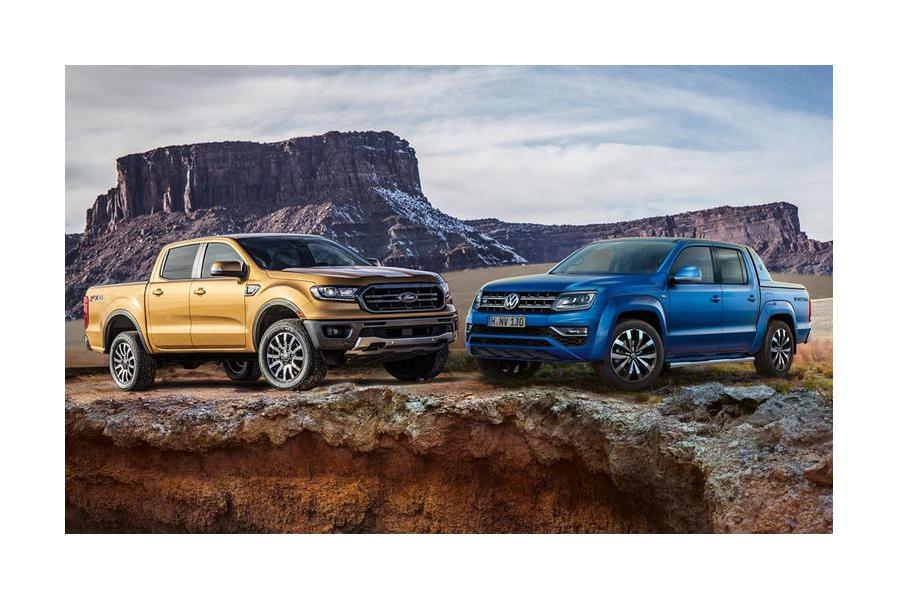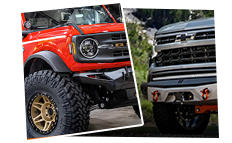Blog Posts

What Ford and Volkswagen's Tie-Up on Trucks (and EVs) Means for the Ranger in America
What Ford and Volkswagen's Tie-Up on Trucks (and EVs) Means for the Ranger in America
Ford and VW formalize an alliance to build pickups and vans, but don’t expect the Amarok to make it to the U.S.
UPDATE 6/13/19: As they proposed in January, Ford and Volkswagen are expected to finalize a partnership to co-develop electric and autonomous vehicles in addition to vans and trucks. Automotive News reports the deal could be closed as early as July.
Ford and Volkswagen have committed to co-develop vans and trucks that will see showrooms starting in 2022, both automakers announced Tuesday. What do Americans probably care about most? That the Ford Ranger will continue as a U.S. product, even as the new joint agreement sees collaboration on non-U.S. versions of the Ranger and the Ford Transit van.
The newly confirmed alliance does not involve any ownership stake. Instead, it finalizes an agreement the two automakers announced last June to collaborate on commercial vehicles. Ford will build an all-new Ranger that will also underpin the next-gen VW Amarok, which is likely to remain outside the U.S., and will continue to engineer the next-gen Transit full-size van that VW may rebrand into its future Transporter. VW said it will build a "city van," which means Ford's next compact Transit Connect could become a rebranded VW Caddy..
"As someone in the industry for less than two years, it's my opinion you can't do this alone," said Ford CEO Jim Hackett.
Jim Farley, president of Ford's global markets, said the next-gen Ranger and Amarok will be sold in South America, Europe, South Africa, and other non-U.S. markets. That means the next Ranger will continue to be developed separately—one for the U.S. market and one for everywhere else. Ford truck spokesman Mike Levine said the automakers will only collaborate on non-U.S. versions of the Ranger and Transit. Ford's Transit Custom, which isn't sold here, will also appear as a VW in Europe under the terms of the new agreement.
Ford and VW each sell more than three dozen commercial models, totaling about 1.2 million vehicles per year. Neither company disclosed estimates on cost savings, only stating that each will realize "improved annual pretax operating results, starting in 2023." Hackett said they intend to use existing manufacturing plants but did not rule out the possibility of closures.
VW CEO Herbert Diess said that the alliance "provides very competitive scale effects with Ford in this segment" while "maintaining independence and identity for both partners." Without elaborating, Diess said it was natural the two companies would share powertrains.
Executives are mulling whether to combine forces on autonomous and electric cars, along with their mobility divisions that are dumping billions into software and connected cars. On Monday, VW said it will pour $800 million into its U.S. plant in Chattanooga, Tennessee, and add 1000 jobs by 2022. The plant will build an electric SUV based on the I.D. Crozz concept starting in 2020 and serve as the "first dedicated location in North America" for future vehicles on the company's MEB chassis. More vehicles could be co-developed, but Ford and VW said they won't reveal more details for several more months.


